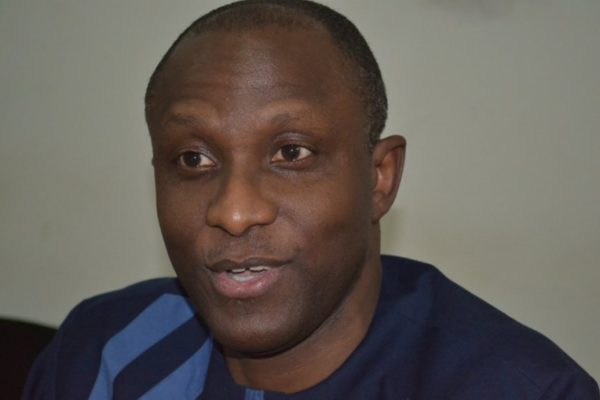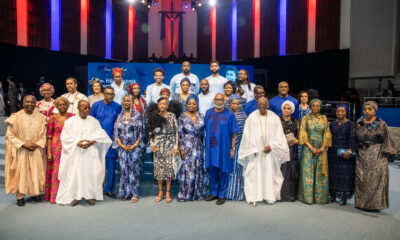News
N5,000 Conditional Cash Transfer: Beneficiaries were Identified before Buhari’s Inauguration – Presidency
The Presidency has cleared the controversy surrounding the selection of beneficiaries of the administration’s Conditional Cash Transfer (CCT), saying they were identified before President Muhammadu Buhari assumed office.
The Senior Special Assistant to Vice President Yemi Osinbajo on Media and Publicity, Laolu Akande, made the clarification in a press statement issued on Sunday.
“The Community-Based Targeting (CBT) model of the World Bank was used two years ago to identify most of the beneficiaries in the pilot States, as the World Bank is also an active agent in the entire process,’’ he said.
According to Akande the data collected belongs to Nigeria.
“There is no way anyone can describe the selection of the beneficiaries of the CCT as partisan, as the beneficiaries from eight of the nine pilot states were picked even before this administration came into office.
First, the officials at the federal level, working with the State officials, identify the poorest Local Government Areas, using an existing poverty map for such State.
Then the local government officials identify the poorest communities in the LGAs and we send our teams there,’’ he further explained.
According to the media aide, the nine states where the N5,000 was being paid to beneficiaries in the pilot scheme are: Bauchi, Borno, Cross Rivers, Ekiti, Kwara, Kogi, Niger, Osun and Oyo.
He said the mention of Ogun instead of Osun in an earlier release was a typographical error adding that only Borno had their beneficiaries identified of recent.
Giving more insight, Akande said “the first thing our team does after selection of the LGAs is to select members of the NOA, the LGA and community officials to form the CBT team.”
“Then we train the selected officials on how to conduct Focus Group discussions at community level. These focus groups comprise of women, men, youth, as the community determines.”
“After training them, the CBT teams now go to each of their communities to sensitize the leaders, including traditional rulers, to the CBT process and the necessity for objectivity and openness in the process.”
“At that meeting, they chose a date to convene a community meeting at a designated location within the community,’’ he said.
He explained that, it is at that stage the CBT team would explain to the community the purpose of the gathering, being to determine the parameters of poverty upon which persons could be described as poor and vulnerable within the context of that community.
According to Akande, in eight of the nine pilot States, this process had taken place at least two years ago under a programme supported by the World Bank under an agreement entered into directly with the state governments, on the YESSO project.
He said that the ninth state, Borno, was added because of the IDP situation, with the list of the beneficiaries that has been verified by the State Emergency Management Agency (SEMA).
“This is an entirely fair and transparent process and short of mischief. There is no way you can describe this process as partisan. The President is President of the entire country and the Social Investment Programmes (SIPs) are for all Nigerians as the case may be,” he added.
The spokesman added that in addition to the nine pilot states, and with the release of funds for the programmes, the CBT model had commenced in other states.
“The states have been updated on the requirements for the engagement by the federal team and once the lists from states are enumerated, their details are uploaded onto a server at the Nigeria Inter-Bank Settlement System, (NIBSS).”
The NIBSS hosts the electronic platform that validates all the payments of the FG for the SIPs.
Akande remarked that banks had been informed that payments must be at community level and that the banks engaged for the pilot stage had in turn engaged several payment agents.
He said the measure was to ensure “cash-out’’ to the beneficiaries in their places of residence which are close to the bank locations.
























